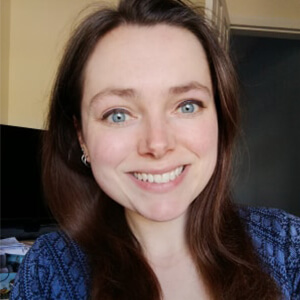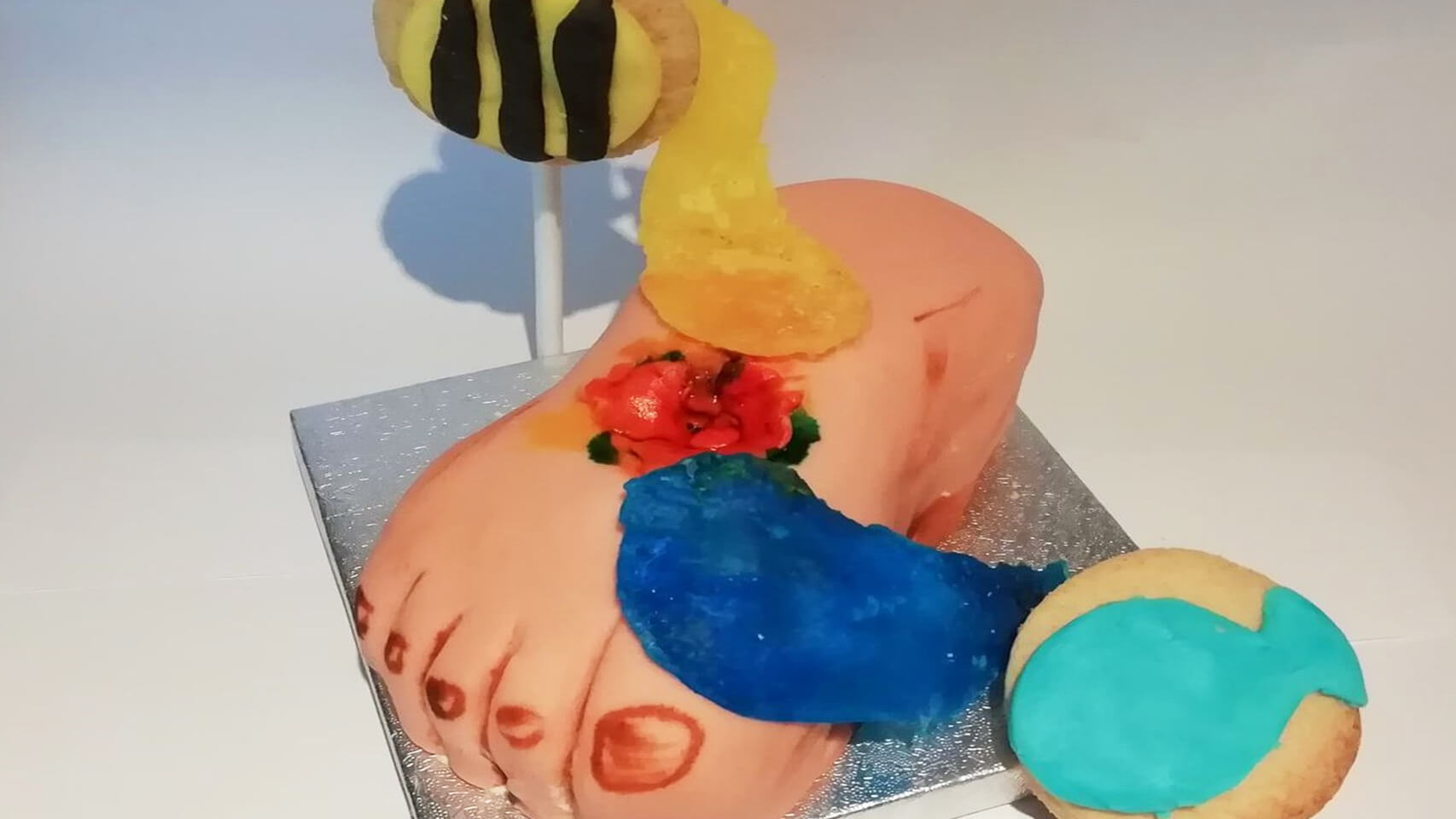My PhD research has focused on how we can use natural substances to help aid surface wounds healing, and these substances have been fatty acids from fish oil and Manuka honey. There’s been two main parts to this, first I looked at how well the substances can fight bacteria as it’s important to prevent infection of wounds in order to let them heal well and prevent complications, such as sepsis. I’ve then also looked at their effect on skin cells to see if they can speed up their growth, and to see if they release any molecules that can help to reduce scarring.
My PhD was part of an advertised project, so my supervisors had decided on a research area and then interviewed to find someone suitable. The project looked really interesting, and as parts of it are relatively novel ideas, Loughborough was the only place that was doing this work!
I did my BSc in Biomedical Science and then an MSc in Molecular Biology. I also had a few years after graduating where I worked as a Fermentation Technician in a research lab making recombinant proteins and I really enjoyed this job, but I really wanted to be a research scientist and most of the ones I knew had a PhD, so I decided that was the next step for me!
I’ve always found biology to be my favourite subject and Biomedical Science covers a very broad spectrum of human biology, and let me work our which bits are my favourites and I carried on from there. I really wanted to pursue something where I felt like my work would have a positive impact, and working with novel treatments that could one day make it into clinics definitely fits that.
Having a PhD will help me to get to the higher levels of research science, whereas previously as a technician somebody else planned the experiments and I just did the work they asked me to. As a Senior Research Scientist I’ll get to be one of the people that plans the experiments this time!
I’ve really enjoyed the freedom of being independent with my research. It’s all led by me and even though I go to my supervisors with questions and ask for guidance, I still get to decide what it is that I focus on, and what my overall aims are. It’s also been good to take part in STEM ambassador activities with the HEART Outreach project. For example, I spent the day with the project showing Girl Guides what regenerative medicine can do, and why it’s a great area to have a career.

I have access to several lab facilities with some very high-tech equipment that was new to me when I started. Lots of processes we did manually as undergraduates became very quick and easy with some of the machines we have here.
I spend anywhere from one to six hours in the lab when I’m running experiments, and any time in between work (biology involves a lot of waiting for things to incubate!) I will spend at my desk, either reading journals, writing up my experiments or analysing data.
Sometimes I’ll have meetings to go to, so I may need to prepare a presentation for those, and at some points during the year I may have undergraduate project students to help. I also help in lab demonstration classes sometimes too.
I have two great supervisors who I have fortnightly meetings with (or more often if needed) who are experts in their fields and can provide lots of constructive advice when I’m planning experiments or writing for my thesis. There are also technicians and other research scientists in our office who are always happy to offer advice!
The Doctoral College offer some really helpful courses and workshops that cover things you’ll need to know from the start, up until your exam and even to getting a job after graduation.
Whilst I’m not in any societies, the other students and staff in our office often plan social activities together (at least we did pre-lockdown). There was a pub quiz we’d go to regularly and we’ve had nights out to the theatre in Nottingham to watch some musicals.
The Doctoral College also run several events to show off your research during the year and I’ve attended several of these while I’ve been at Loughborough. These are really interesting because they are University-wide so I see a range of projects from other departments and get to see what other people are doing outside of my field. I’ve taken a poster to one of these before and getting to talk about your research with new people is always interesting as they often have an entirely new perspective you may not have considered before.
I also won £20 for a cake I baked! I entered a ‘Bake your Thesis’ contest as part of the University’s Summer Showcase. I made a foot shaped cake with a wound on it, and I got an Amazon voucher. It was a lot of fun to make, and was great to be able to do something outside of the usual poster or talk.

My advice would be to ask as many questions as you need to. I certainly spent a bit of time in my first year going round in circles because I was a bit embarrassed to ask for help and admit I wasn’t sure what I needed to do. Make sure you don’t dedicate all your time to work. The PhD process is pretty intense, and you need to make sure you look after yourself too, so make sure you have downtime where you can relax.
I’ve learnt that I’m more resilient that I realised; there have been so many times where an experiment has gone wrong, or I’ve spent weeks planning it for it to then not work at all and while these times are difficult, I’ve gotten quite good at just going “Okay that didn’t work. I’ll try this instead.” Even when it’s the third of fourth time it happens…
In five years’ time, I hope to be a Senior Research Scientist working in industry. I really enjoyed my time working with recombinant proteins and doing work with DNA so I think I’d like to head back to that area.